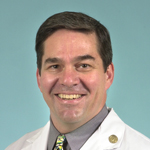Washington University School of Medicine in St. Louis has received a $50 million grant to help speed the translation of scientific discoveries into improvements in human health.
The grant, from the National Institutes of Health (NIH), supports the School of Medicine’s Institute of Clinical and Translational Sciences (ICTS), one of 60 such centers in the United States.

“We’re working to advance clinical and translational research throughout the university,” says ICTS Director Bradley A. Evanoff, MD, assistant dean for clinical and translational research. “The ICTS is not built around one specific disease or clinical specialty. We are charged with speeding the application of research findings in prevention, diagnosis and treatment across a wide spectrum of health conditions and research disciplines.”
The grant is a renewal of a Clinical and Translational Science Award (CTSA), funded through the new National Center for Advancing Translational Sciences (NCATS), which is a part of the NIH.
Evanoff says the ICTS will support Washington University’s strengths and, in doing so, help pursue the goals of the BioMed 21 initiative to encourage cross-disciplinary and translational research. Over the next five years, the ICTS will increasingly focus on promoting three areas likely to have a high impact: translating research in genetics and genomics into patient care; developing and evaluating new therapeutics; and improving ways to disseminate and implement research findings so they become part of regular medical practice.
According to Evanoff, Washington University has tremendous strengths in genetic and genomic research, and is beginning to apply the results of this research to patient care. Working with investigators in the departments of genetics and pathology and immunology, the ICTS established a Genomics Medicine Program to provide easier access to a wide range of new technologies. This is allowing more investigators to apply the tools and techniques of the genetic revolution to improve diagnosis and treatment of a host of conditions.
To speed development and evaluation of new therapeutics, the ICTS will collaborate with Washington University faculty and regional partners including Saint Louis University and the St. Louis College of Pharmacy to develop new drugs, biologics, medical devices and diagnostic tests.
Evanoff and his colleagues note that it sometimes can take years to incorporate research findings into usual medical practice. As such, the ICTS also supports the later stages of translational research most likely to benefit patients quickly. In particular, they will foster a close partnership with BJC HealthCare, the largest non-profit healthcare network in the Midwest.
In general, translational research is divided into four stages:
- Taking a discovery made in the lab, often in animal models of disease, and evaluating it in humans for the first time.
- Performing early clinical trials looking at safety and effectiveness in highly controlled conditions with a relatively small number of patients.
- Conducting larger clinical trials in which the treatment is tested in normal clinical practice with a broader population of patients.
- Spreading the word. Once something is known to work, the next step is to encourage its wide adoption across medical practices.
“We are supporting research and education across all stages of this translational research spectrum,” Evanoff says. “We serve as a bridge between basic and clinical science, support early-stage clinical research and clinical trials, and link research findings to their applications in medical practice and public health.”
Other major goals of the ICTS include providing financial support and training for new investigators in clinical and translational research, building new research support infrastructure, encouraging collaborations among faculty across disciplines, and creating pathways for investigators to find and utilize existing research resources.
“’Democratization of technology is a goal of the ICTS,” Evanoff says. “By collaborating with existing resources at Washington University and our regional partners, we’ve enabled a broader group of investigators to gain access to cutting-edge technologies in imaging, genetics, and other important areas.”
Evanoff also emphasizes that the ICTS is a regional consortium that includes important partnerships with BJC HealthCare, Barnes-Jewish Hospital, St. Louis Children’s Hospital, Saint Louis University, the St. Louis College of Pharmacy, the Goldfarb School of Nursing, and the nursing schools at the University of Missouri-St. Louis and Southern Illinois University-Edwardsville.
“Together with our regional and national partners, our mission is to connect research findings to their eventual application in improving the health of the public,” Evanoff says. “That’s the exciting part of translational research.”
The Washington University ICTS is supported by NIH/NCATS grants awards UL1TR000448, KL2TR000450, and TL1TR000449.
Washington University School of Medicine’s 2,100 employed and volunteer faculty physicians also are the medical staff of Barnes-Jewish and St. Louis Children’s hospitals. The School of Medicine is one of the leading medical research, teaching and patient care institutions in the nation, currently ranked sixth in the nation by U.S. News & World Report. Through its affiliations with Barnes-Jewish and St. Louis Children’s hospitals, the School of Medicine is linked to BJC HealthCare.